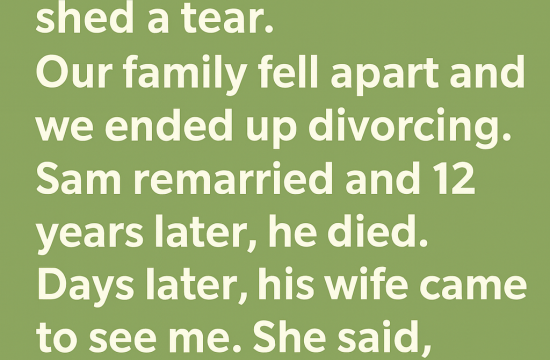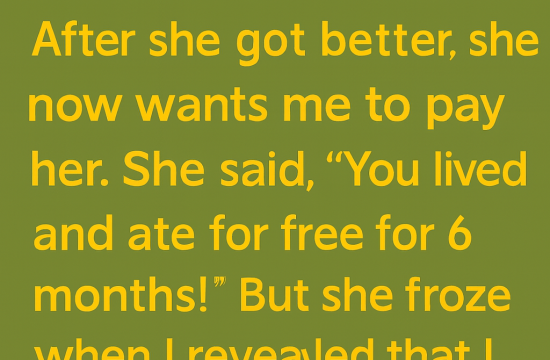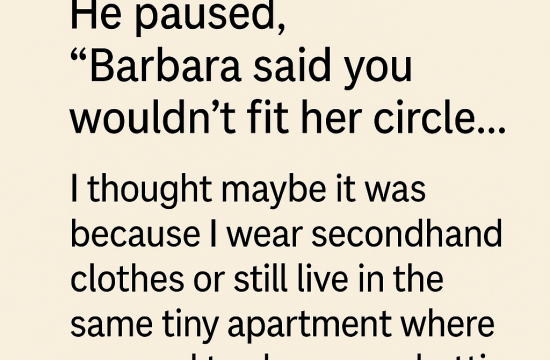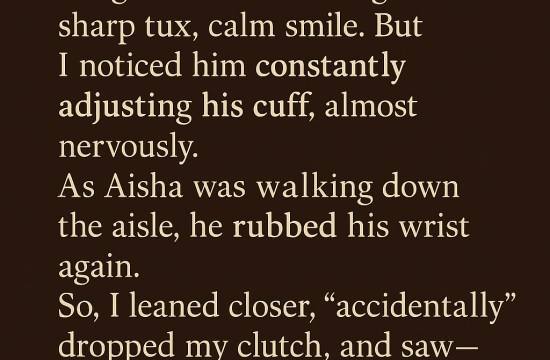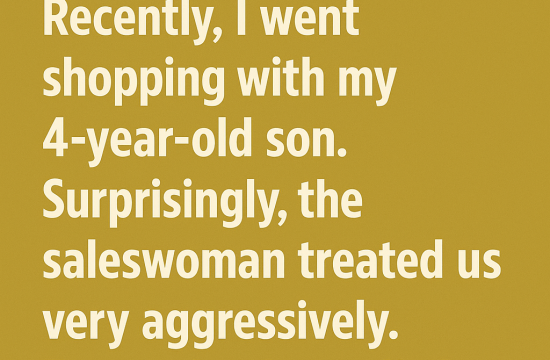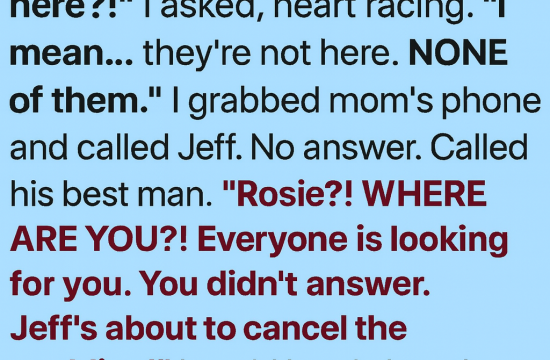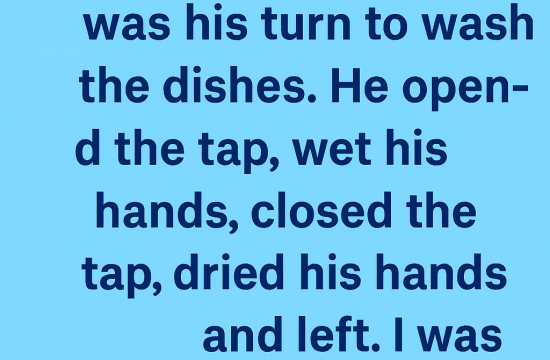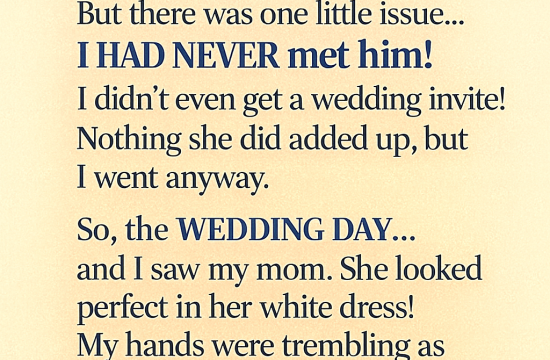For six long months, I wasn’t allowed to meet my first grandchild.
Every time I asked, my daughter-in-law gently replied that she “wasn’t ready for visitors.” At first, I respected her space. New motherhood is hard, I reminded myself. But soon, the distance felt unsettling—especially when I learned that her own mother had already moved in.
I offered to bring food. Suggested video calls. Sent handwritten notes and small gifts wrapped with love. Each gesture was met with polite, practiced distance. My heart cracked a little more each time.
My son sounded exhausted whenever we spoke.
“Please, Mom… just a little more time,” he’d whisper. There was something in his voice—a heaviness, maybe even guilt—but I didn’t push. I didn’t want to be the overbearing mother-in-law who couldn’t take a hint. But every day without even a glimpse of my grandchild gnawed at me. Was I doing something wrong?
Then one night, something inside me finally broke.
I baked my son’s favorite cinnamon rolls, packed them warm in a basket, and drove straight to their house. My hands trembled as I rang the bell, bracing myself for anger—or for yet another gentle excuse.
What I didn’t expect… was two babies.
Twins.
My knees nearly gave out.
My daughter-in-law stood in the doorway, hair unbrushed, eyes swollen from crying. When she saw the cinnamon rolls, she didn’t speak—she simply burst into tears. And then, between deep sobs, the truth poured out.
The babies had come early. Terrifyingly early.
She had nearly died giving birth. The twins spent their first weeks in the NICU, tiny bodies wrapped in wires and uncertainty. She wasn’t keeping me away out of cruelty—she was drowning. She felt ashamed for struggling, terrified of being judged, overwhelmed by postpartum anxiety she didn’t know how to name.
They weren’t protecting their privacy.
They thought they were protecting me—from worry, from panic, from the storm they didn’t know how to navigate. But all I had felt was rejection.
That night changed everything.
Slowly, gently, they let me in. At first, I only held the babies when she stayed upstairs to rest. But over time, we fell into a rhythm—shared coffees during bleary mornings, whispered conversations during naptime, tears that didn’t need explanations. Trust began to sprout in the quiet spaces where fear once lived.
Then her mother slipped and broke her ankle, leaving them desperate for help.
That was the moment I stepped in fully—watching the twins alone for the first time, becoming their steady pair of hands, their calm when the house felt chaotic.
As the months passed, I witnessed their little miracles:
The first giggle.
The first tooth.
The moment one twin reached out to hold the other’s hand.
I watched my son and daughter-in-law grow—not into perfect parents, but into real ones. Tired, flawed, learning, loving. And when sleep deprivation began to strain their marriage, I helped them find their footing again.
One afternoon, they sat me down at the kitchen table.
My daughter-in-law reached across and squeezed my hand.
“Would you… consider moving in with us?” she asked.
My answer came without hesitation. “Yes.”
At the twins’ first birthday—balloons everywhere, frosting on cheeks, laughter echoing through the house—she raised her glass.
“To the woman who never gave up on us,” she said, her voice trembling.
I wept.
Because I finally understood something I wish I had known earlier:
When people push you away, it isn’t always rejection.
Sometimes it’s pain.
Sometimes it’s fear disguised as silence.
And sometimes, love simply needs a little more time—and a steady heart willing to keep showing up.


